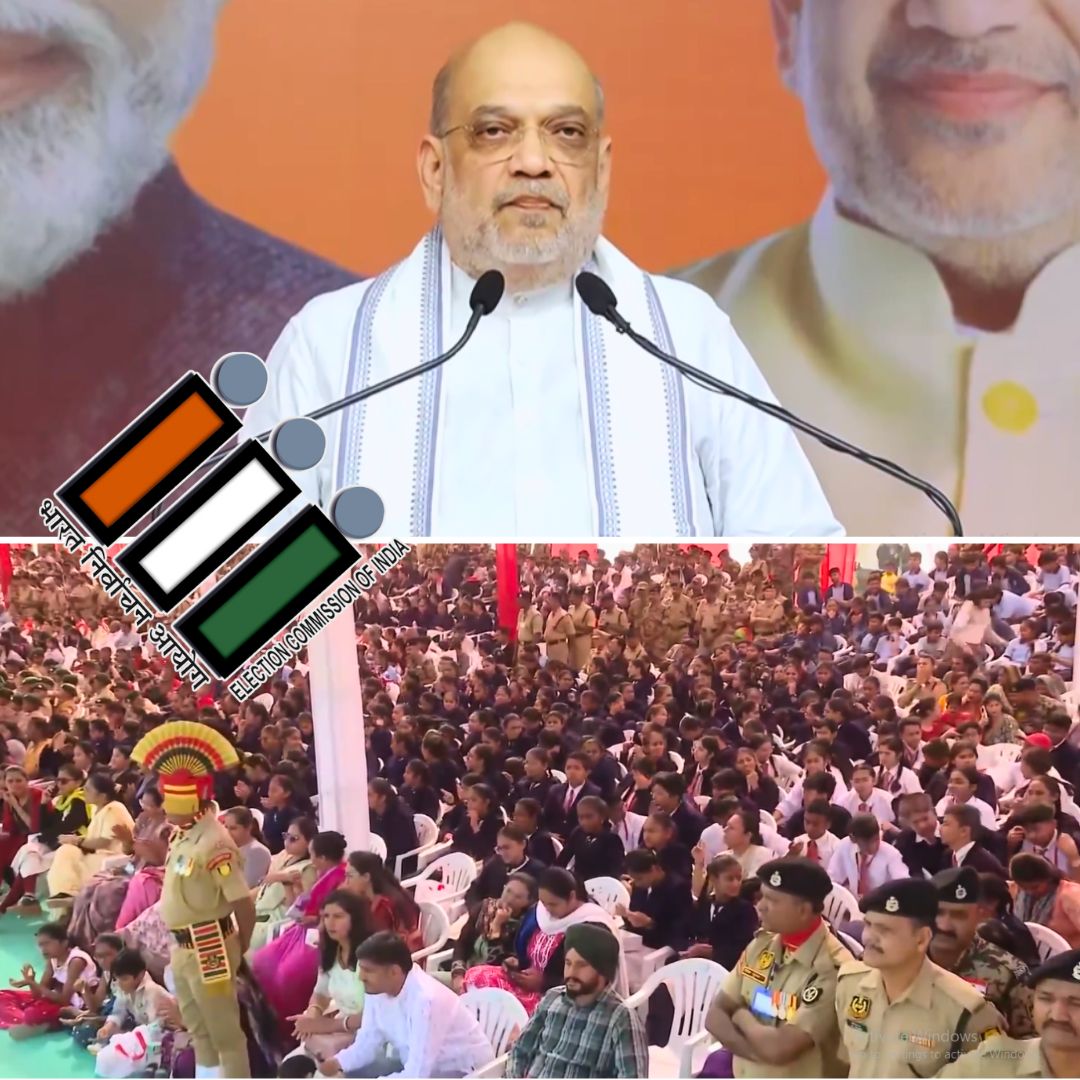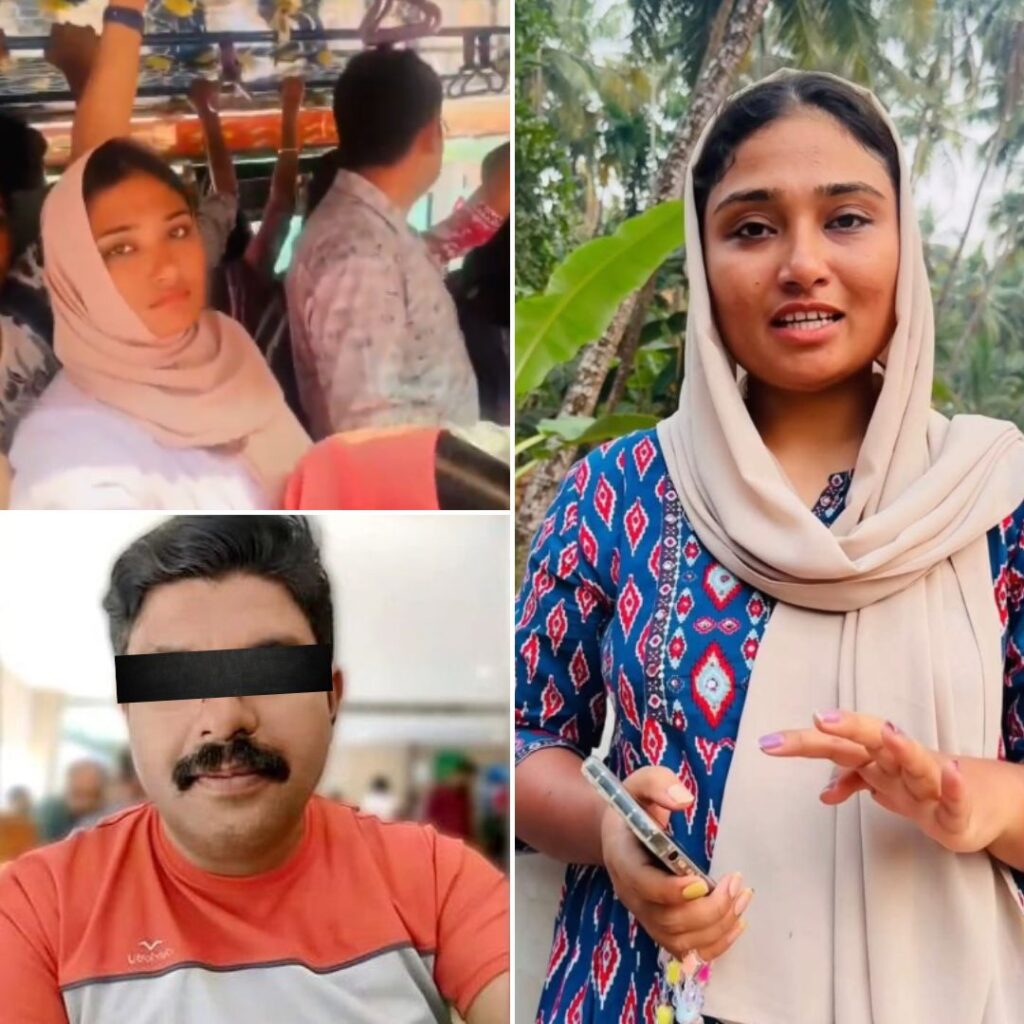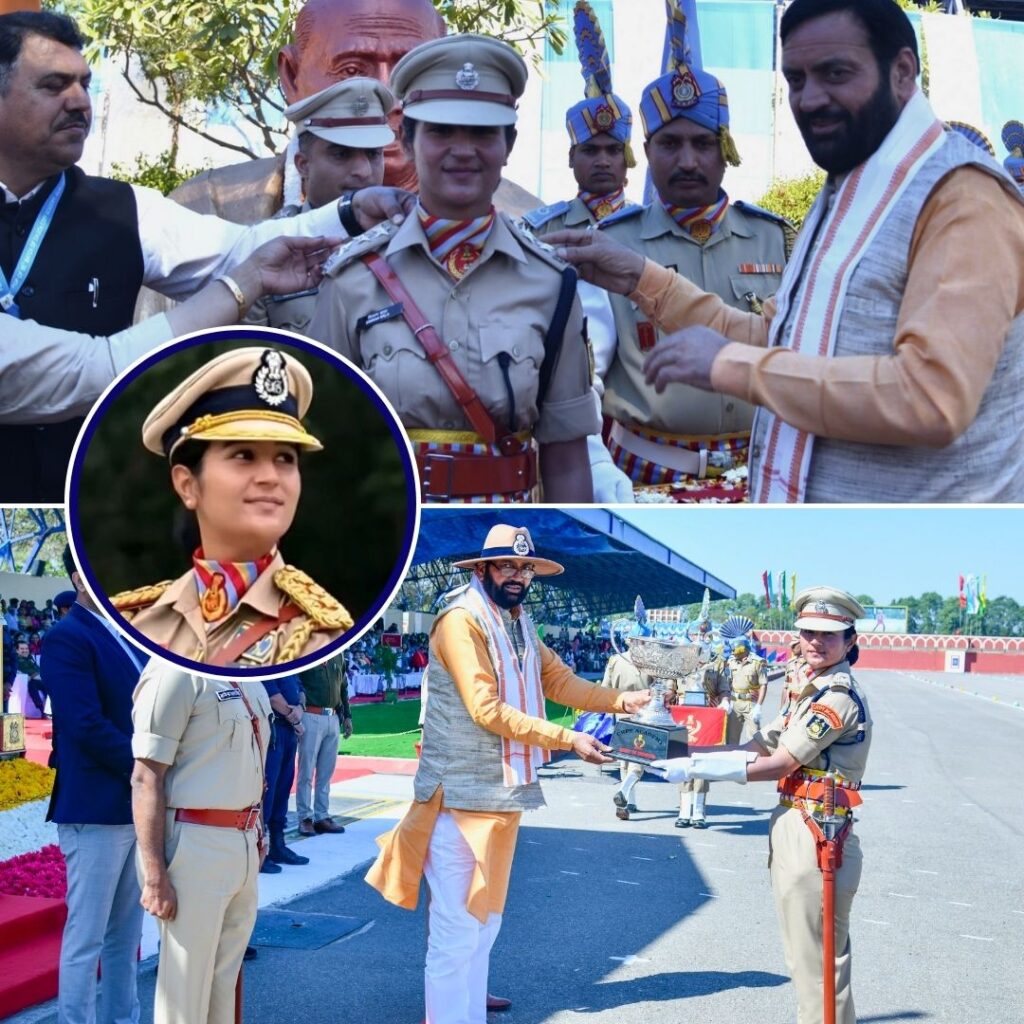Union Home Minister Amit Shah has issued a robust warning against political parties he accuses of protecting “infiltrators” during the ongoing Special Intensive Revision (SIR) of electoral rolls, while speaking at the Border Security Force’s 61st Raising Day celebrations in Haripur, Bhuj, Gujarat.
Shah asserts the exercise is essential for removing illegal infiltrators from India’s voter lists to safeguard democracy and national security.
His remarks came a day after West Bengal CM Mamata Banerjee criticised the SIR as chaotic and dangerous, urging the Election Commission to halt it.
Shah linked opposition parties’ resistance to the SIR with their desire to keep infiltrators on the rolls. The controversy unfolds amid Supreme Court scrutiny and impending elections in several states, including West Bengal and Tamil Nadu, highlighting deep political tensions surrounding electoral integrity in India.
Electoral Integrity and National Security: Amit Shah’s Stand
At the Border Security Force’s (BSF) 61st Raising Day celebrations in Bhuj, Gujarat, Shah outlined a compelling vision of the SIR as a crucial “purification” process for electoral rolls.
He described the exercise as a fight to protect democracy from being polluted by illegal infiltrators who compromise the integrity of the voter list.
Shah warned that some political parties, without naming them explicitly but referencing those in the INDIA bloc, are obstructing the process deliberately to shield infiltrators from removal.
Shah emphasised that stopping infiltration is not merely a security measure but also a democratic necessity. He hailed the role of the BSF not only for the border security it provides but also for anti-infiltration operations.
The Home Minister vowed that every infiltrator would be identified and deported, framing the SIR as part of a larger mission to protect India’s sovereignty and uphold the democratic mandate.
He also pointed to the recent Bihar election results, interpreting the public mandate there as an endorsement of the government’s approach to electoral cleansing and infiltrator removal.
In his address, Shah pledged to enhance the BSF’s capabilities further with a five-year plan focusing on modernisation and welfare for personnel, linking internal security reform with broader electoral vigilance.
Opposition and Administrative Challenges
The SIR process has been strongly criticised by opposition leaders, most notably Mamata Banerjee, Chief Minister of poll-bound West Bengal.
She penned a scathing letter to the Chief Election Commissioner, alleging that the revision exercise is “unplanned, chaotic, coercive and dangerous,” severely burdening Booth Level Officers (BLOs) and risking disenfranchisement of genuine voters due to inadequate training and glitch-ridden data systems.
Banerjee highlighted the immense pressure on BLOs, many of whom juggle other duties such as teaching or frontline work, and are now tasked with door-to-door verification amidst server failures and confusing documentation requirements.
Her concerns also address the risk of data mismatches and the possibility that the exercise will not be completed accurately before the December 4 deadline, warning that these failures could erode trust in the electoral process.
Other opposition figures, including Bengal’s Leader of the Opposition Suvendu Adhikari, have taken a hard stance against Banerjee’s portrayal of the SIR, framing her criticisms as political maneuvers to protect illicit vote banks and to undermine the Election Commission’s efforts.
This debate spotlights the tension between administrative feasibility, political opposition, and the government’s push for rigorous voter verification.
Political Stakes and Future Elections
The fallout from the SIR exercise is unfolding amid high political stakes, with elections due next year in West Bengal, Tamil Nadu, and other key states.
Shah reaffirmed the Bharatiya Janata Party’s confidence in forming governments in these regions, linking electoral success to the broader strategy of voter roll purity and national security.
He accused some political parties of opposing the SIR to protect infiltrators, thus politicising the electoral revision exercise in a way that deepens divides.
The government insists the process is in line with constitutional mandates, while opposition parties see it as a potential tool for voter suppression and disenfranchisement.
Meanwhile, the Supreme Court has taken cognisance of petitions challenging the SIR, signaling that the legal dimensions of this political controversy are far from settled. The unfolding judicial review adds another layer of complexity to the electoral preparations and governance landscape.
The Logical Indian’s Perspective
The Logical Indian acknowledges the critical importance of maintaining electoral integrity as foundational to democracy. Ensuring voter rolls are free from illegal infiltrators protects the very essence of citizen participation and national sovereignty.
However, this imperative must be balanced with a humane and transparent approach that respects civil liberties and protects genuine voters’ rights.
While the government’s resolve to safeguard democracy is commendable, the concerns raised about SIR’s implementation highlight the necessity for better planning, resource allocation, and inclusive dialogue.
Polarised political rhetoric and administrative challenges should not jeopardise public trust or alienate communities.
Democracy thrives on dialogue, empathy, and coexistence, even amid rigorous reforms. The exercise to cleanse voter rolls can only strengthen democracy if it is administered fairly and sensitively, ensuring no genuine citizen is left disenfranchised.













